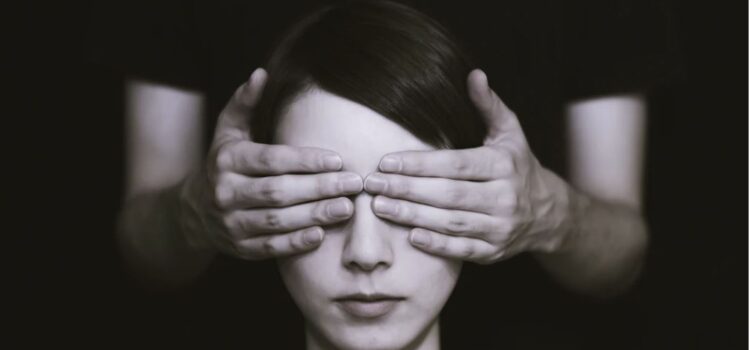

This article is an excerpt from the Shortform book guide to "Predictably Irrational" by Dan Ariely. Shortform has the world's best summaries and analyses of books you should be reading.
Like this article? Sign up for a free trial here .
What does the psychology of expectations tell us? Is it possible to unlearn expectations?
The psychology of expectations says that you will get what you expect. This means that if you expect Coke to taste better than Pepsi, then it will, even if you’d rate Pepsi better in a blind taste test. This is because expectations have a huge impact on your experiences.
Keep reading to learn more about the psychology of expectations.
The Psychology of Expectations
Rationally, when you and another person witness an event together, you should have roughly the same experience and account of what happened. Of course, this isn’t always the case. Imagine that you’re at the dog park and your dog and another start fighting. You’re outraged because the other dog clearly started the fight. To your surprise, the other dog’s owner is also outraged, convinced your dog was the instigator. This is because the psychology of expectations says you will get what you expect.
Your knowledge that your dog is always friendly makes you sure that he couldn’t have started the fight—but of course, the other owner feels the same way about her own dog. As it turns out, your perception of events is heavily colored by your expectations and knowledge going into an experience. This doesn’t just influence your belief of what happened—your expectations can physically modify your sensory perceptions.
Experiment: Beer and Vinegar
At MIT, students were offered a choice between two beers. Beer A was regular Budweiser, and Beer B was Budweiser with two drops of balsamic vinegar added to each ounce. Each student was asked to taste the two beers and then choose which they’d like a pint of.
- Students who weren’t given any information about the beers usually chose the vinegar-laced Beer B after the taste test.
- Students who were told about the vinegar before the taste test overwhelmingly favored Beer A.
In the second part of the experiment, students were divided into two groups: those who were informed about the vinegar in their beer before they tasted it, and those who were informed after they tasted the beer. The results showed that those who learned about the vinegar after they tasted the beer enjoyed it much more than those who had expectations about the vinegar beforehand. According to satisfaction surveys given in both parts of the experiment, those who learned about the vinegar post-tasting enjoyed the beer just as much as those in the blind taste test who didn’t know about the vinegar at all.
The students’ experience with the beer was not changed by the information they had—if this was the case, both the groups who were informed about the vinegar would have given a low rating, whether they’d received the information before or after. This experiment reveals that experiences are shaped by the psychology of expectation—the information we have before an experience is much more influential than the information acquired after the experience.
Why Awareness of Expectation Influence Matters
Expectations—conscious and subconscious—exist in all facets of your life, so it’s important to understand how your expectations are influenced and how to keep your expectations as unbiased as possible.
Sometimes, the influence of expectation shows up in fairly innocuous ways. Much of your perception of how good or bad food products are depends on their branding. For example, in blind taste tests, most people prefer the taste of Pepsi to Coke. However, when people are told ahead of time whether they will be drinking Pepsi or Coke, they tend to enjoy the taste of Coke more. This is because Coca-Cola advertisers work hard to associate their brand with pleasant images and memories so that you quite literally “taste the feeling” that their advertisements evoke.
Other times, expectations can have far-reaching and detrimental effects. Stereotypes lead us to expect that certain types of people will behave a certain type of way. We then act unjustly toward them, based on what we expect they’ll be like—not based on what they’re actually like.
Furthermore, your expectations for yourself can be influenced by stereotypes about yourself. One study of Asian-American women revealed just how easily this can happen. Stereotypically, women are often considered weaker in mathematics, but Asian-Americans are considered very good at math. In the experiment, there were two groups of Asian-American women.
- Group A answered a series of questions pertaining to their gender and then took a math exam.
- Group B answered a series of questions pertaining to their race and then took the same math exam.
The results showed that those women who were primed to think about their gender—and subconsciously, the attached stereotype—performed worse than those who were primed to think about their race.
How to Unravel Your Expectations
It’s very difficult to “unlearn” the information that colors your experience of an event, but you can find ways to work around this information in order to make decisions and sort through problems as rationally as possible.
Many of our irrational conflicts and arguments stem from people arguing “their” side of an experience or agreeing with whichever side they expect to be better. You see this all around you—in sports, spousal arguments, and even international conflicts. There are several ways to get around this.
- First, if possible, you can lay out the unbiased facts of what happened, not who did what. For example, “Money was taken from the joint account to make a large purchase. One person didn’t know about the purchase. The joint account was agreed upon as a saving-only account, not spending.” This prevents accusations and highlights factual discrepancies that might be fueling a misunderstanding.
- Second, you can ask a neutral third party to step in and help you hash out arguments—such as a couples therapist.

———End of Preview———
Like what you just read? Read the rest of the world's best book summary and analysis of Dan Ariely's "Predictably Irrational" at Shortform .
Here's what you'll find in our full Predictably Irrational summary :
- How logic is failing you on a daily basis
- How to identify your irrational behaviors
- Why getting something for free can cause you to make bad decisions






